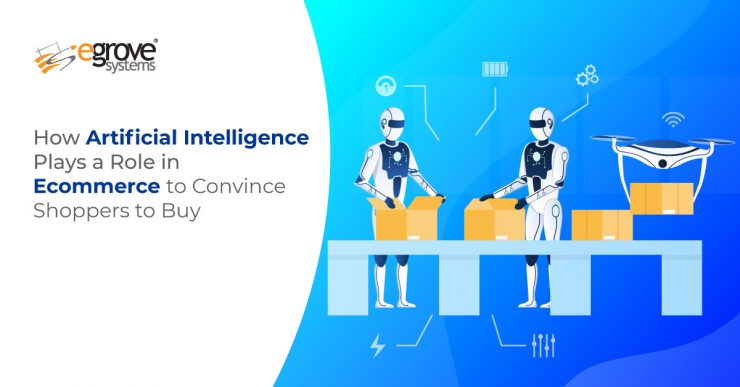Our buying patterns, the products we like, and our shopping habits are no longer a secret. Any retailer can know about the products we are interested in just by tracking our buying history and collecting data about our previous purchases. Retailers no longer need to call us or conduct a survey to understand our likes and dislikes. They are rather relying on Artificial Intelligence to understand our buying patterns and get a better idea of the products we are highly likely to purchase.
Artificial Intelligence is one of the fastest-growing technologies, gaining immense popularity in every industry. Retailers, wholesalers, pharmacists, engineers, and even IT experts use AI-powered tools to automate their businesses and analyze business data seamlessly. The technology has developed to a stage where the customers are suggested products that they realize they are interested in buying. So, the next time you visit the supermarket for grocery shopping and make the payment via app or other online payment sources, you know that the AI-powered tools will gather details about the products you bought.
The Role of AI in Consumer’s Buying Pattern
AI has the ability to learn based on the data it is fed. It doesn’t really show you the products similar to the ones you have purchased before, but Artificial Intelligence learns about your buying patterns to understand the types of products you like. It does a lot more than suggest the relevant products based on your purchase history.
For example, AI tools have the power to anticipate how likely you are to try a different brand or buy chocolate on a Sunday night. Many retail stores in the UK and USA have already embraced AI-powered apps to streamline their management tasks while collecting customer data. The demand for such apps is growing rapidly in the post-covid world where people are reluctant to visit the land-based store. With more and more people using online shopping services to make purchases, AI tools have become mainstream.
Read also: How to Use Machine Learning and AI in Marketplace Development?
How is AI Changing the Future of Shopping?
A startup company in Germany tried AI tools and noticed that 9x customers purchase products suggested by the company using AI-powered marketplace mobile apps instead of buying products that are promoted with traditional marketing techniques. Even if the discount on these products was 30% higher, people preferred AI-suggested goods as they were more relevant to their needs. People prefer discounts on products they are interested in buying instead of random coupons on products that they don’t need. That’s where the AI helps retailers. While the technology is helping many retailers and wholesalers in personalizing people’s shopping experience, the authorities are concerned about the tools collecting a vast amount of data about people.
People love to buy recommended products because these are usually the items that they either need or are interested in buying. However, not everyone is comfortable with the retailers learning about their personalities and buying patterns.
According to a 2020 report by Gartner, 3/4 the giant retailers had either the AI systems already running in their eCommerce and brick-and-mortar or were planning to implement them by the end of 2020. However, this demand forecasting by AI-powered multivendor marketplace applications did not work during the pandemic. People panic purchased. They bought the essentials instead of buying the non-essential items, which created a major imbalance in the demand and supply chain.
Conclusion
The marketplace development has become the biggest trend of 2021. Ever since the COVID outbreak, people have started relying more on online shopping for a safe buying experience. Retailers are also implementing AI-based tools for speedy growth.
















Add comment